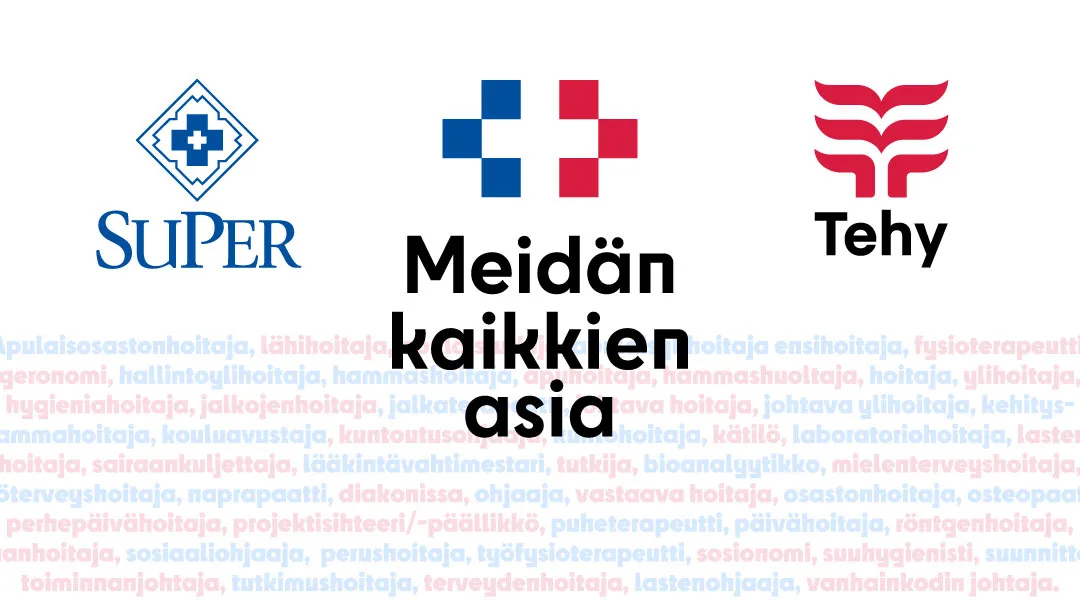The organisations point out that this legislation is not required in order to secure the health and life of patients, as Finnish legislation already contains the means suitable for an independent court of law to deny or interrupt a strike if it threatens the health and life of the people. These means have been used in similar situations on male-dominated fields. The legislative proposal severely interferes with the basic rights of nurses and places the female-dominated field in an entirely different position from male-dominated fields.
Compared to the proposal discussed on Sunday, social services have been replaced by home care alone, but the proposal continues to apply to health care as extensively as before. In addition, the proposal aims to prevent future industrial action in the social services and health care field. Therefore, the proposal cannot be considered a limited precision act to secure patient safety, as the line minister proposed. Rather, the aim is to remove the right to industrial action entirely from employees in the social services and health care field.
The justifications for the legislative proposal contain many kinds of affirmations that the various powers contained in the proposal for limiting legal industrial action would be used in steps, which would ensure that each form of power could only be used if a less strict method does not work. However, in practice the legislative proposal has been constructed so that the employer may request the Regional State Administrative Agency to deny or move the industrial action quite directly.
Through its legislative proposal, the government shows that the work of nurses is so irreplaceable and necessary for society that it must be done, regardless of the right to industrial action. The organisations point out that forced labour will only make the shortage of nurses worse.
Further information:
Manager for Tehy’s legal services Kari Tiainen, tel. 040 500 0430
SuPer’s advocacy director Anne Sainila-Vaarno, tel. 050 310 1492

